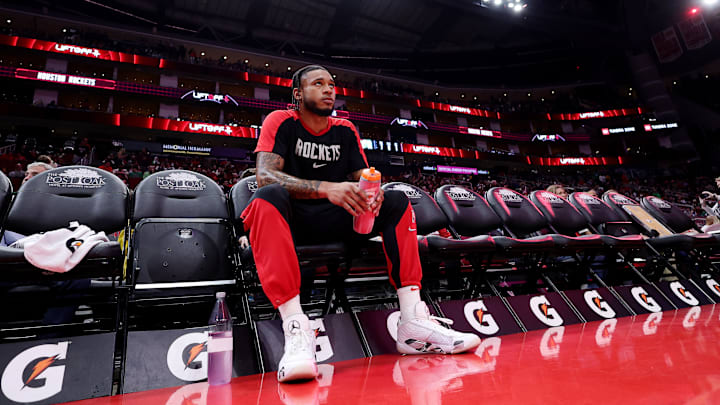If any one word can accurately describe what the Houston Rockets have done in 2024-25, it's likely to be, "Improbable." Just two years removed from going 22-60 and one departed from a 41-41 campaign, Houston is on pace for 56 wins and the No. 2 seed in the Western Conference.
By most means and measures, the Rockets have every reason to be grinning from ear to ear over how their astonishing rebuild has taken shape.
For as remarkable as it's been to witness the Rockets' ascension, there's an undeniable air of confusion surrounding their success. Five of their seven leading scorers are shooting 43.5 percent or worse from the field, and the team's rankings in key statistical areas are far from encouraging.
Houston ranks dead last in assist percentage, 26th in eFG%, and 27th in true shooting percentage—facts that somehow haven't prevented it from ranking No. 9 in offensive rating.
For all of the improbability of the Rockets' success, the bottom line is that they're indisputably successful. They're No. 3 in the NBA in defensive rating, have an All-Star level center in Alperen Sengun, and have a compelling group of aggressive isolation scoring threats.
Unfortunately, the questionable sustainability of that indisputable success has beckoned a question: How much longer can the Rockets afford to deprioritize Reed Sheppard and Cam Whitmore?
Rockets must figure out how Reed Sheppard, Cam Whitmore fit
Houston selected Sheppard at No. 3 overall in the 2024 NBA Draft. It was a powerful statement about the direction of the franchise, as it invested heavily in a player who many believe could realistically emerge as the best guard in his class.
At the collegiate level, Sheppard established himself as an elite three-point shooter who defended at a high level and created for himself and others. The proof was in the numbers, as he averaged 12.5 points, 4.5 assists, 4.1 rebounds, 2.5 steals, 0.7 blocks, and 2.3 three-point field goals made per game.
Unfortunately, Sheppard is averaging just 11.5 minutes per game during his rookie season.
He's shooting just 31.4 percent from the field and 27.1 percent from beyond the arc, which could explain Ime Udoka's reluctance to play him. True as that may be, a first-year player who's putting up fewer than 4.0 shots per game is all but destined to struggle to find efficiency.
The question facing Udoka and the Rockets is whether or not they can justify limiting his playing time when his upside could be the key to unlocking the potential of the team.
Jalen Green vs. Cam Whitmore has become an unnecessary battle
There's a degree of patience that can be justified with Sheppard due to his status as a rookie on a deep roster. The way Houston has utilized Whitmore is harder to defend, however, as he's already showing signs of becoming a potentially elite scorer.
Whitmore averaged 23.7 points per 36 minutes as a rookie and is in that same neighborhood in 2024-25, tallying 23.4 points per 36.
Unfortunately, Whitmore is averaging just 15.5 minutes per game—primarily due to Jalen Green and Dillon Brooks playing a combined 64.7. Green has stepped up in recent weeks, averaging 30.6 points over the past seven games, but both he and Brooks are inefficient offensive options with questionable long-term places in Houston.
Blasphemous a thought as it may seem when he's on his game, Green was mentioned on Brian Windhorst and The Hoop Collective as a player the Rockets could look to trade as recently as late October.
Perhaps Green's recent form is a sign of things to come, thus answering the Whitmore question for Udoka and the Rockets. It's equally as possible that Sheppard will see more minutes once Fred VanVleet and his $128,539,845 contract come off the books—an event that could transpire as soon as this coming summer.
In the meantime, however, the Rockets must figure out how to incorporate their up-and-comers in a way that prevents alienating two of the most important building blocks they have.
